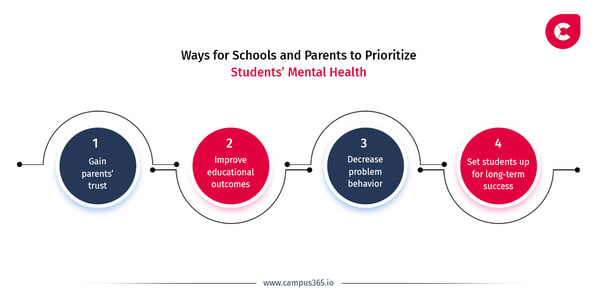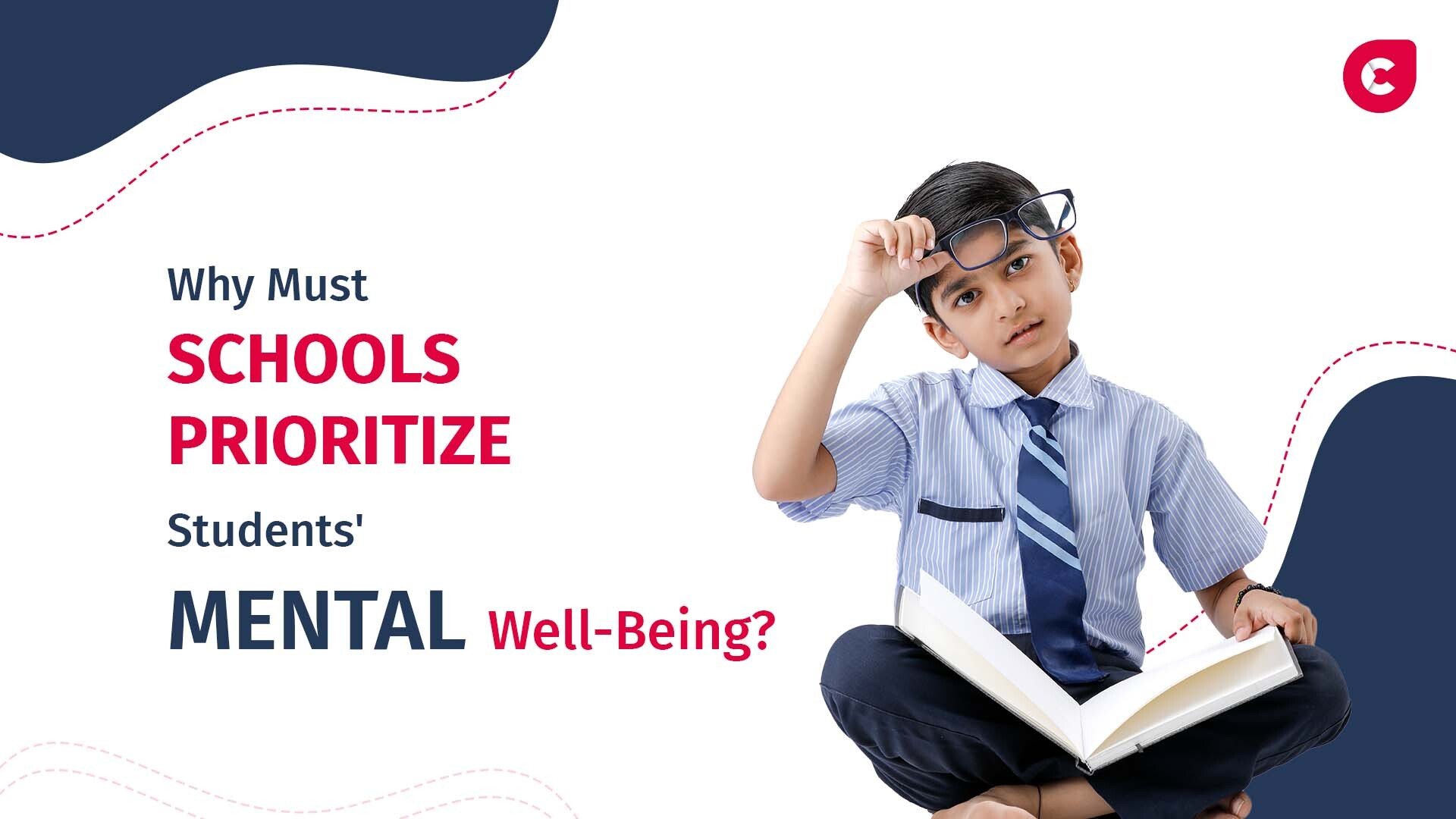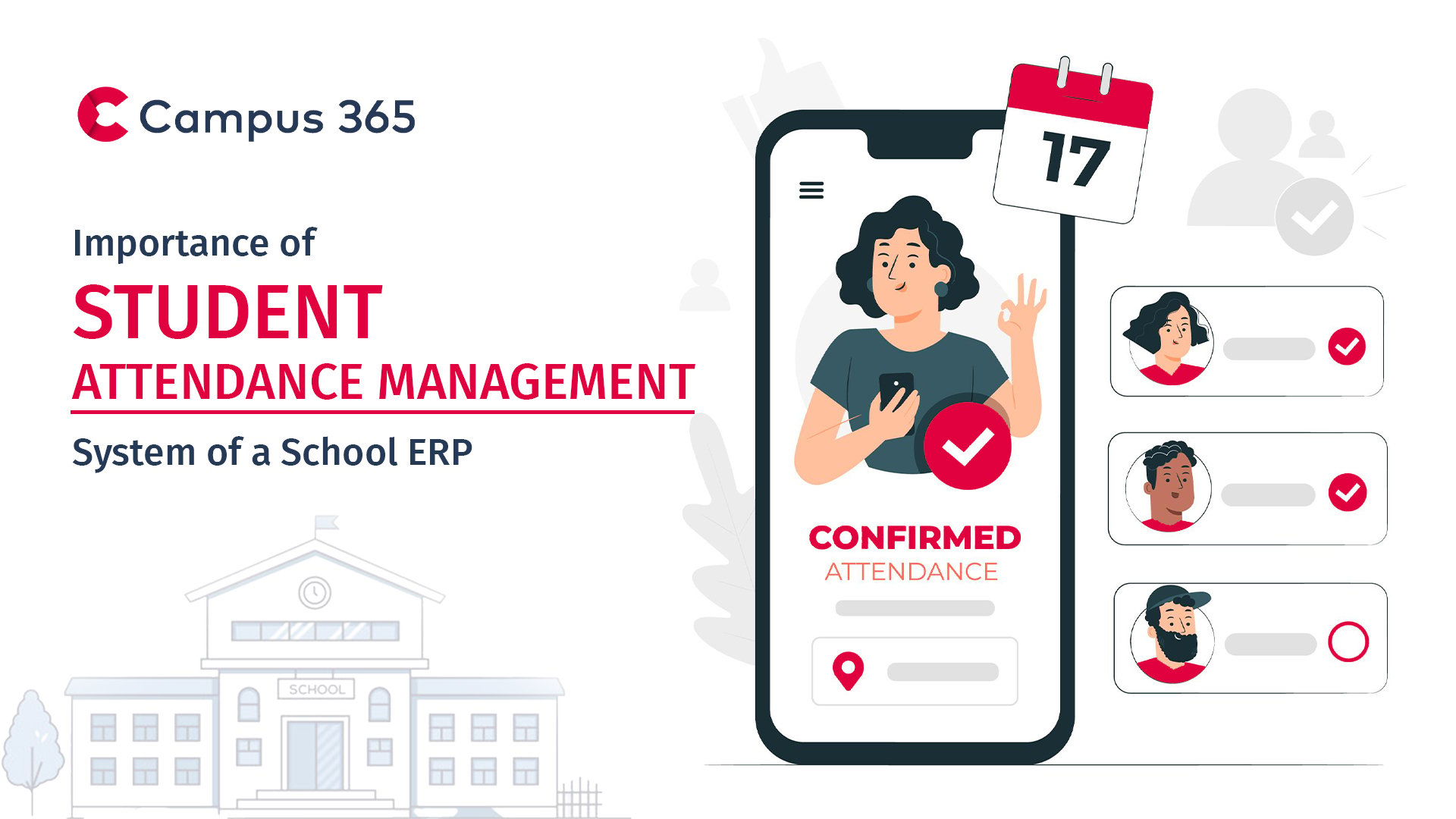It's never easy to grow up. As children, they are thrust into a rapidly changing world in which they are expected to learn, grow, and meet societal standards. Sometimes, it does affect their mental health.
Academic stress, navigating relationships, understanding their gender and sexuality, and managing their emotions and mental well-being is just the tip of the iceberg of the challenges faced by students.
It's understandable that so many young adults struggle academically and suffer from mental health issues like depression and anxiety. It is because of this reason they struggle to achieve the desired goals in their academic span.
According to the World Health Organization, approximately 10-20 percent of adolescents worldwide suffer from mental health issues, but these are either underdiagnosed or improperly treated.
The Covid-19 pandemic that erupted a year ago has only served to raise the tally.
According to a recent report by the Early Intervention Foundation, anxiety/depression symptoms (such as low mood, loss of interest in activities once enjoyed), and decreased motivation and engagement have been observed by more than three-quarters of secondary school teachers. There are several mental health issues faced by students in online classes which needs to be effectively addressed on a priority basis.
How schools and parents can prioritize students’ mental health
More than ever, parents and educators must place a high value on the physical, social, mental, and emotional well-being of students in addition to academic achievement. Nowadays, many schools are adopting school management systems like Campus 365 which assist them better in recording not only student academic data but also tracking their mental health. It does a timely behavior assessment of students, records data, and generates reports accordingly. This report is then sent to the school and parents for further action if needed.
Students, teachers, and schools benefit from adopting a framework in which well-being is a fundamental component. Here's how to do it.

1. Gain parents' trust and confidence
Students' academic progress has been the primary focus of schools for a long time. However, schools gradually embrace a growth mindset and alter how they teach their students.
There is no substitute for a well-rounded education that prepares students for the challenges they face both in and outside the classroom.
To accomplish this, the school experience should focus on enhancing students' resilience and well-being. Most schools' vision is based on this conviction, and as a result, these are the kinds of schools that attract both parents and students.
Many factors play a role in a parent's decision to enroll their children in a school, not just one or two.
On the other hand, parents seem to place a high value on whether or not their children are happy and enjoying school as one of the most important considerations (along with other things like educational quality, strict discipline, qualified teachers, and increased student safety).
This is an even more urgent request in the event of a global pandemic, given how stressful it can be for children to start school or return to school. Many parents are concerned about how their children will adapt to changes in the classroom and schoolwork and how they will be able to form relationships with their peers and teachers.
The school ERP software helps parents in an integrated learning approach where they can be involved in their children's holistic development in school. With a user-friendly mobile app, they can be on tips regarding their child’s behavior in school.
Proactive support for students in need, like providing mental health counseling to those who are having difficulties, and an increased focus on mental health and well-being throughout the school, are all highly desired.
2. Enhance the quality of education
According to research conducted over the past decade, students' well-being and academic success are linked.
More successful students are more likely to complete their education, have more options for work, and have a more positive outlook on life.
Schools can increase students' overall well-being by teaching them social and emotional skills (such as self-reliance and teamwork).
However, it is common for students to lose motivation and engagement, harming their performance. Schools can significantly enhance students' academic performance by identifying the root causes of their disengagement and providing support to help them deal with them.
Well-being interventions can positively impact student outcomes. All interventions positively impact academic results, especially those that promote school belonging and engagement; provide mentoring, and help students develop social-emotional skills.
Meta-analyses have shown an 11-percentile-point increase in academic achievement in schools with Social and Emotional Learning (SEL) programs.
Students who are healthy and happy tend to improve their ability to concentrate and stay motivated to study. They are also more open to learning from schools rather than cowering in the face of difficulties, particularly in academics, due to better relationships with teachers and mentors.
To put it another way, people learn better when they feel better. In contrast, today's schools understand this and devote more time to enhancing well-being and teaching social-emotional skills than they did five years ago.
Additionally, students returning to school amid a global pandemic may feel more confident in their ability to make up for the lost time in class if they make an effort to improve their mental well-being.
3. Decrease problematic behavior of students
To deal with the physical and psychological changes that come with adolescence, kids must learn to navigate peer relationships, understand their identity, and cope with school stress. Kids go through many different stages in their lives, and we've all been there, done that.
However, adolescence is also a time of onset for serious mental health issues, such as depression and anxiety, common among adolescents.
This only serves to aggravate already unstable moods and actions. Feeling down, being unable to concentrate, having extreme mood swings, withdrawing from friends and activities, having difficulty sleeping, excessive fatigue, problems with alcohol or drugs, changing eating habits, and having suicidal thoughts are all examples of abnormal behavioral changes.
Students who have a low level of mental well-being are more likely to engage in deviant behavior.
To address this issue, schools can use the “mood tracking feature” of school ERP software which tracks the daily mood of the child. It regularly takes input if the child is happy or sad and sends a timely report to the parents and teachers. Schools can then hold regular student mental health counseling sessions to address their mental health issues.
4. Make sure your students have a strong foundation for future success
A well-rounded, successful individual requires more than just a solid academic foundation; they also need to communicate effectively and work well in a team.
Are schools providing their students with the life skills they need to succeed in today's competitive workplace?
Schools can improve students' mental well-being by teaching students how to cope with life's challenges by teaching them resilience. With the development of a growth mindset, schools will better equip students to face the challenges of adulthood with self-assurance and enthusiasm for learning.
Most importantly, it instills in them the notion that the act of learning itself is more significant than the result itself. A positive outlook on life and an eagerness to learn new things are traits that children who develop these habits will carry into adulthood.
And we're done!
Many long-term studies have shown that students with growth mindsets outperform fixed mindsets, even if they started with the same level of knowledge or skills.
Schools can implement programs that teach students to cultivate a sense of well-being and resilience. They aim to help students develop self-awareness and management skills, responsible decision-making, and social awareness in the long run.
Also, an exclusive ‘mood tracking’ feature of school management software like Campus 365 plays a very important role in diagnosing the mental health issues of students at schools by performing regular behavior assessments. Its features track the daily moods of students and send the report to the parents and school. It helps them decide if the children need mental health counseling to address their mental health issues on time.




